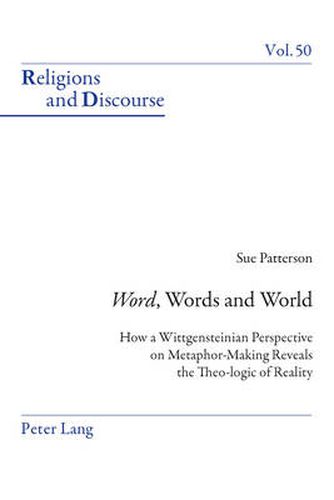Readings Newsletter
Become a Readings Member to make your shopping experience even easier.
Sign in or sign up for free!
You’re not far away from qualifying for FREE standard shipping within Australia
You’ve qualified for FREE standard shipping within Australia
The cart is loading…






This title is printed to order. This book may have been self-published. If so, we cannot guarantee the quality of the content. In the main most books will have gone through the editing process however some may not. We therefore suggest that you be aware of this before ordering this book. If in doubt check either the author or publisher’s details as we are unable to accept any returns unless they are faulty. Please contact us if you have any questions.
The question this book aims to address is: how do we take on board post-modern insights regarding the relationship between language and world without losing our grip on theological truth? Employing the linguistic philosopher Ludwig Wittgenstein as ‘philosophical hand-maid’ (as opposed to ‘metaphysical gate-keeper’, which has tended to be the case), it subjects to critique both traditional realist and post-modern constructivist perspectives as it examines how the nature and role of metaphor-making at the creative edge of language casts light on the God-language-world relationship. It concludes that a Wittgensteinian understanding of the relationship between language and world is not only compatible with a ‘theistic-realist’ doctrine of God but that the shape of this doctrine is inescapably Trinitarian.
$9.00 standard shipping within Australia
FREE standard shipping within Australia for orders over $100.00
Express & International shipping calculated at checkout
This title is printed to order. This book may have been self-published. If so, we cannot guarantee the quality of the content. In the main most books will have gone through the editing process however some may not. We therefore suggest that you be aware of this before ordering this book. If in doubt check either the author or publisher’s details as we are unable to accept any returns unless they are faulty. Please contact us if you have any questions.
The question this book aims to address is: how do we take on board post-modern insights regarding the relationship between language and world without losing our grip on theological truth? Employing the linguistic philosopher Ludwig Wittgenstein as ‘philosophical hand-maid’ (as opposed to ‘metaphysical gate-keeper’, which has tended to be the case), it subjects to critique both traditional realist and post-modern constructivist perspectives as it examines how the nature and role of metaphor-making at the creative edge of language casts light on the God-language-world relationship. It concludes that a Wittgensteinian understanding of the relationship between language and world is not only compatible with a ‘theistic-realist’ doctrine of God but that the shape of this doctrine is inescapably Trinitarian.